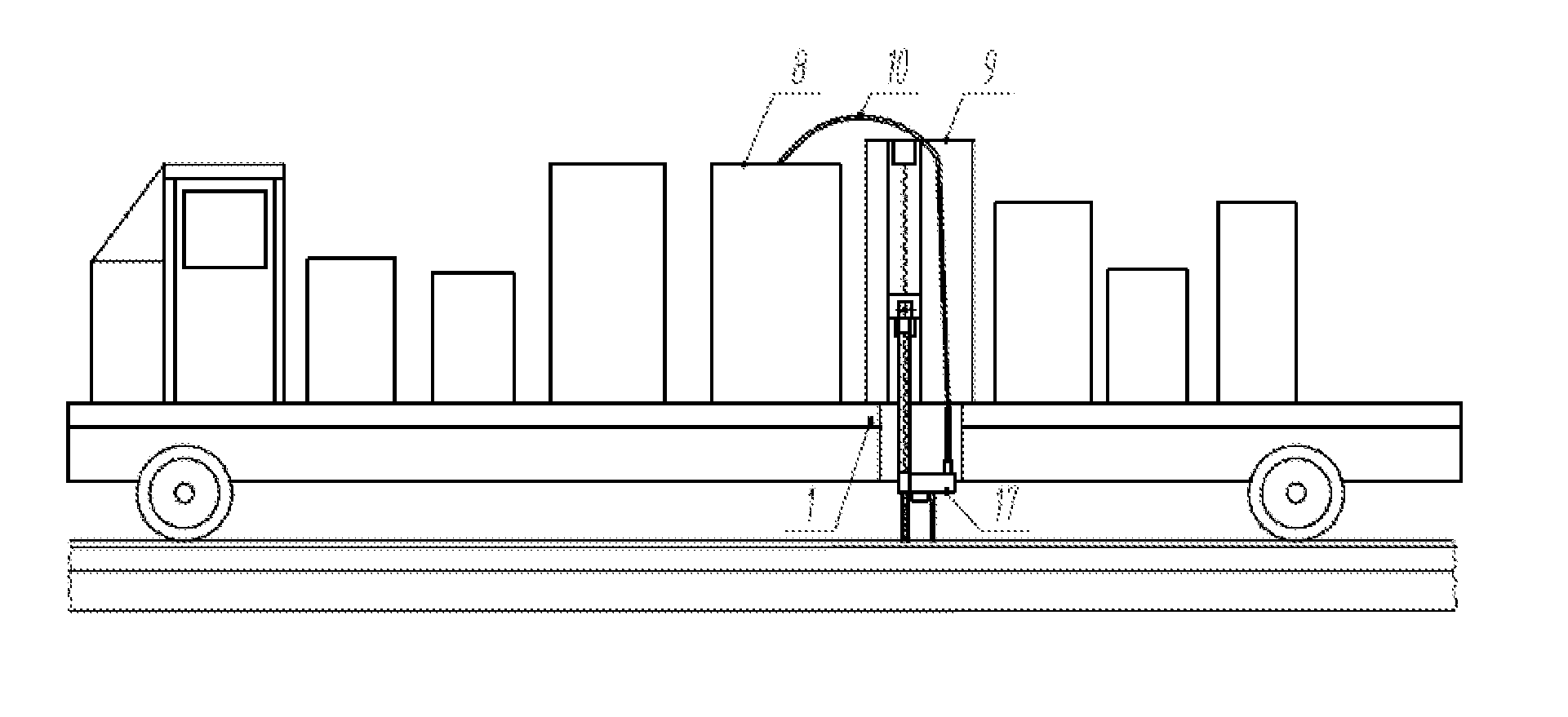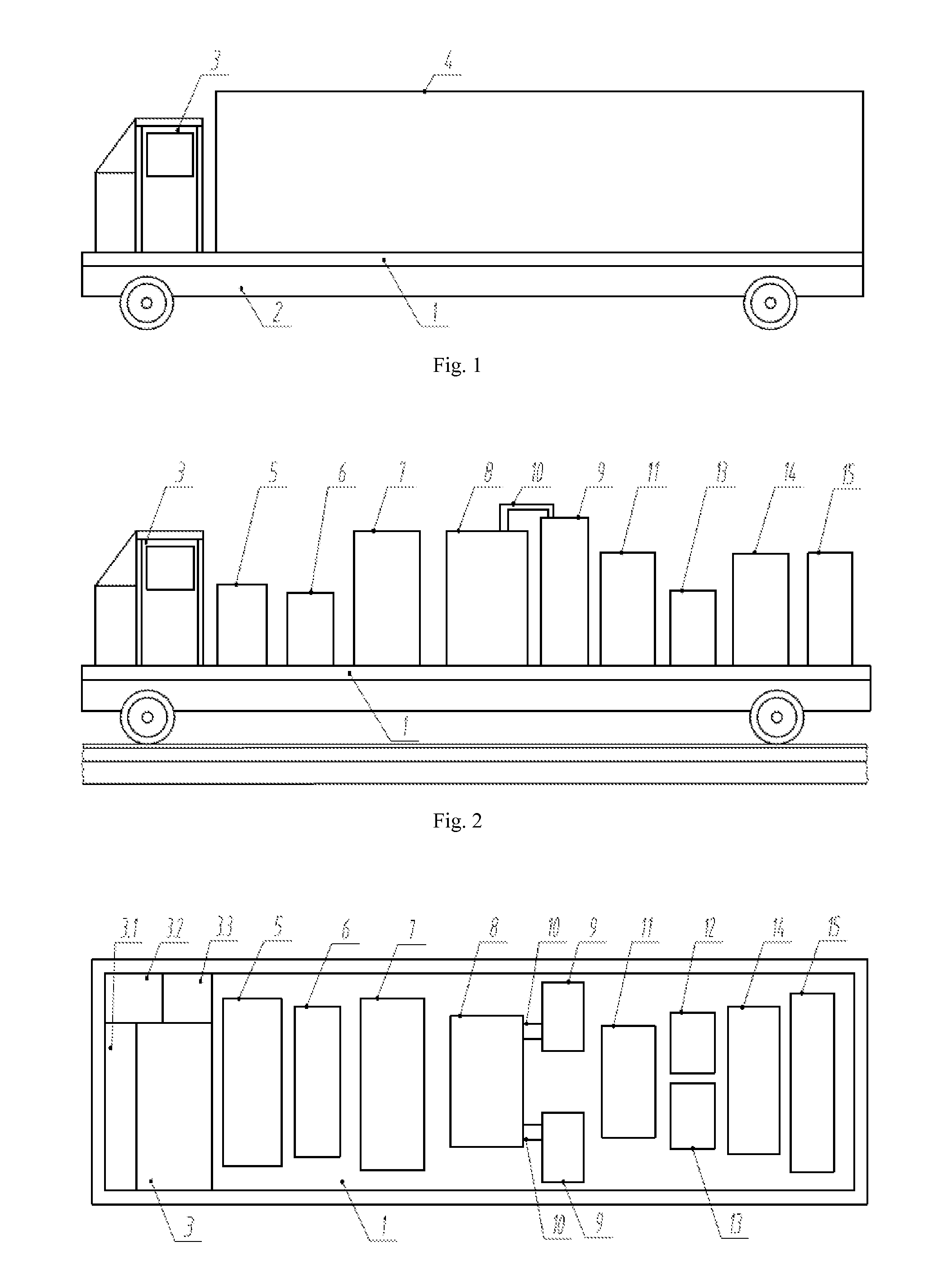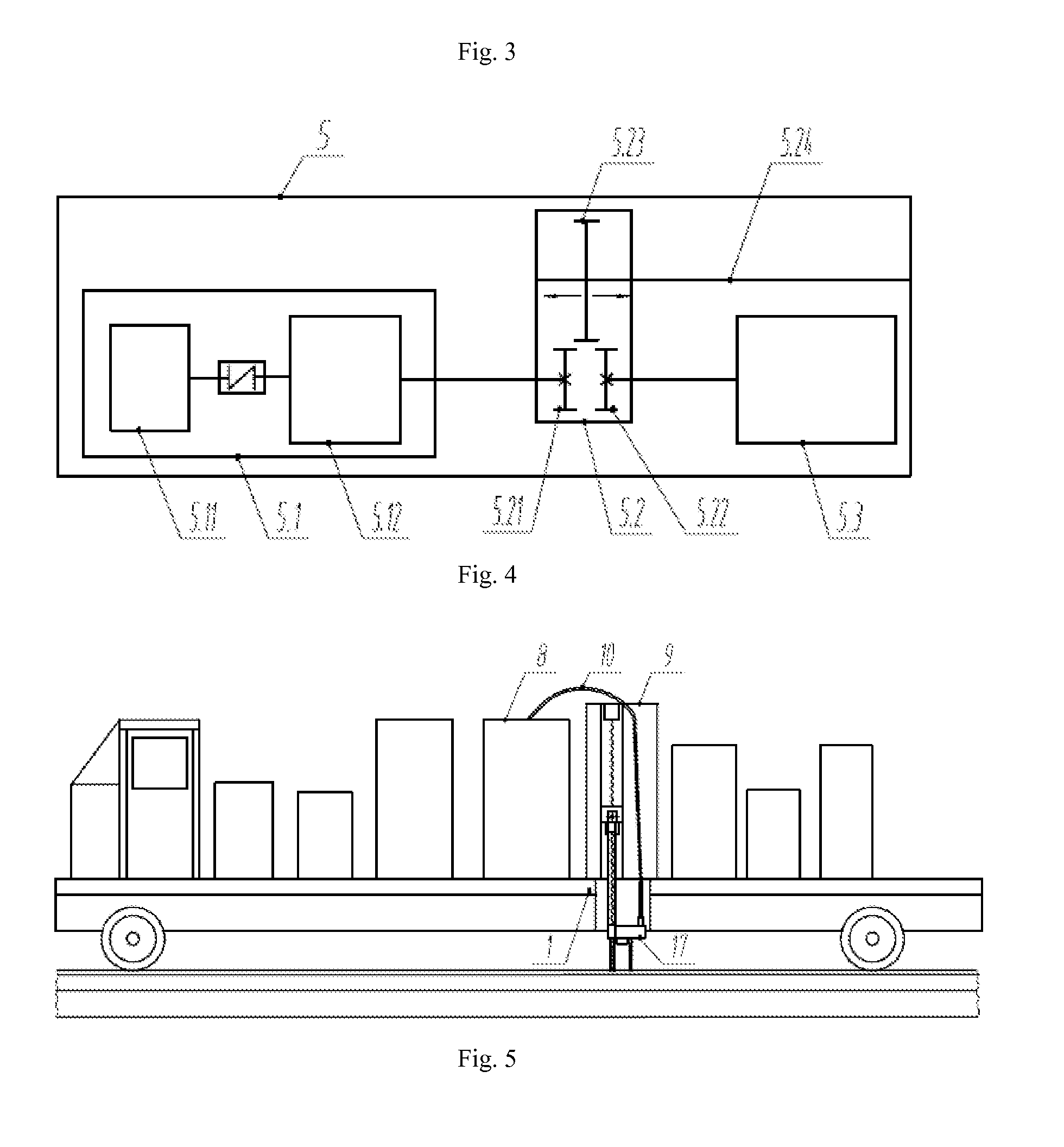Onsite steel rail laser processing vehicle
- Summary
- Abstract
- Description
- Claims
- Application Information
AI Technical Summary
Benefits of technology
Problems solved by technology
Method used
Image
Examples
first embodiment
[0043]The first embodiment is an on-line laser processing vehicle for rail according to the present invention.
[0044]As shown in FIGS. 1 and 3, the laser processing vehicle comprises a vehicle body 1, a chassis 2, a steer-control chamber 3 disposed in front of the vehicle body 1, and a container 4 disposed at the rear of the vehicle body 1. The vehicle body 1 is disposed on the chassis 2, the chassis 2 is a chassis of a railway flat-deck car or a railway passenger car, and a transmission system for power transmission, a railway coupling-wheel system for running on the rail, and a turning and braking system are disposed at the bottom thereof. Besides a normal steering system, the steer-control chamber 3 comprises a console 3.1, a CCD monitoring system 3.2, and a drive-switching operating system 3.3. As shown in FIGS. 2 and 3, a dual driving and switching mechanism 5, a grinding and cleaning equipment 6, a chiller 7, a laser group 8, a movement actuator 9, a light-guide system 10, a po...
second embodiment
[0064]The second embodiment is a convertible road-railway laser processing vehicle according to the present invention.
[0065]As shown in FIG. 11, difference of the second embodiment from the first embodiment is the chassis of the used laser processing vehicle, the second embodiment uses a chassis of a respective-running-type convertible road-railway vehicle 20, so that the laser processing vehicle is capable of traveling on a railway or a road. As the chassis of the respective-running-type convertible road-railway vehicle 20 is used, the conventional operation driving system 5.3 of the dual driving and switching mechanism 5 is a driving system of a convertible road-railway vehicle; the steer-control chamber 3 is changed correspondingly: the conventional operation driving system therein is changed to a conventional operation driving system for the convertible road-railway vehicle; in addition, the console 3.1, the CCD monitoring system 3.2 and the drive-switching operating system 3.3 ...
third embodiment
[0067]The third embodiment is another form of the convertible road-railway laser processing vehicle according to the present invention.
[0068]As shown in FIG. 12, difference of the third embodiment from the second embodiment is that climbing-rail systems 16 and 16′ are added to the chassis of the respective-running-type convertible road-railway vehicle 20. Since the climbing-rail systems 16 and 16′ use hydraulic cylinders, a hydraulic system is disposed in the container 4, meanwhile, an operation platform operating to control the climbing-rail systems 16 and 16′ and the hydraulic system is disposed in the steer-control chamber 3. Other parts of the convertible road-railway laser processing vehicle are the same as those of the first embodiment.
[0069]As shown in FIG. 13a, the climbing-rail system 16 comprises four lifting devices and a transverse expanding device 16.5, the four lifting device are a first lifting device 16.1, a second lifting device 16.2, a third lifting device 16.3 and...
PUM
 Login to View More
Login to View More Abstract
Description
Claims
Application Information
 Login to View More
Login to View More - R&D
- Intellectual Property
- Life Sciences
- Materials
- Tech Scout
- Unparalleled Data Quality
- Higher Quality Content
- 60% Fewer Hallucinations
Browse by: Latest US Patents, China's latest patents, Technical Efficacy Thesaurus, Application Domain, Technology Topic, Popular Technical Reports.
© 2025 PatSnap. All rights reserved.Legal|Privacy policy|Modern Slavery Act Transparency Statement|Sitemap|About US| Contact US: help@patsnap.com



